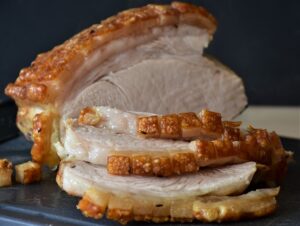Introduction
Intermittent fasting has gained popularity as a method for weight loss and improved health. However, one common challenge faced by individuals practicing intermittent fasting is dealing with cravings. These intense desires for specific foods can be difficult to resist, potentially leading to overeating and hindering progress. In this article, we will explore effective strategies to stop cravings when practicing intermittent fasting.
Understanding Cravings
Before we delve into the methods to stop cravings, it is essential to understand why they occur. Cravings are often triggered by a combination of physiological and psychological factors. Physiologically, when we restrict our calorie intake during fasting periods, our body’s hunger hormones, such as ghrelin, increase, leading to an increased desire for food. Psychologically, cravings can be triggered by emotional states, habits, or even the sight or smell of certain foods.
Stay Hydrated
One effective strategy to combat cravings during intermittent fasting is to stay hydrated. Dehydration can sometimes be mistaken for hunger, leading to unnecessary food cravings. Drinking an adequate amount of water throughout the day can help curb cravings and keep you feeling satisfied. Additionally, herbal teas or flavored water can provide a refreshing alternative to plain water.
Consume Balanced Meals
When breaking your fast, it is crucial to consume balanced meals that include a combination of protein, healthy fats, and fiber-rich carbohydrates. These macronutrients help promote satiety and keep you feeling full for longer periods. Including foods such as lean meats, fish, nuts, seeds, vegetables, and whole grains can help stabilize blood sugar levels and reduce cravings.
Include Fiber-Rich Foods
Fiber-rich foods are known for their ability to promote feelings of fullness and reduce cravings. Incorporating foods like fruits, vegetables, legumes, and whole grains into your meals can provide a good source of dietary fiber. Fiber not only aids in digestion but also slows down the absorption of sugars, preventing blood sugar spikes and subsequent cravings.
Practice Mindful Eating
Mindful eating is a technique that involves paying full attention to the eating experience, including the taste, texture, and smell of food. By practicing mindful eating, you can develop a deeper awareness of your body’s hunger and fullness cues. This can help you differentiate between true hunger and cravings triggered by external factors. Engaging all your senses during meals can enhance satisfaction and reduce the likelihood of succumbing to cravings.
Manage Stress Levels
Stress can significantly impact our food cravings, often leading to a desire for comfort foods high in sugar and fat. Managing stress levels through techniques such as meditation, deep breathing exercises, or engaging in activities you enjoy can help reduce cravings. Additionally, finding alternative ways to cope with stress, such as exercise or spending time with loved ones, can prevent emotional eating.
Get Sufficient Sleep
Lack of sleep has been linked to increased cravings and a higher likelihood of overeating. When we are sleep-deprived, our body’s hunger hormones become imbalanced, leading to an increased desire for high-calorie foods. Prioritizing quality sleep and aiming for seven to eight hours per night can help regulate these hormones and reduce cravings.
Conclusion
Cravings can be a significant challenge when practicing intermittent fasting. However, by implementing strategies such as staying hydrated, consuming balanced meals, including fiber-rich foods, practicing mindful eating, managing stress levels, and getting sufficient sleep, you can effectively stop cravings and maintain your intermittent fasting routine.
References
– Mayo Clinic: mayoclinic.org
– Harvard Health Publishing: health.harvard.edu
– National Sleep Foundation: sleepfoundation.org













